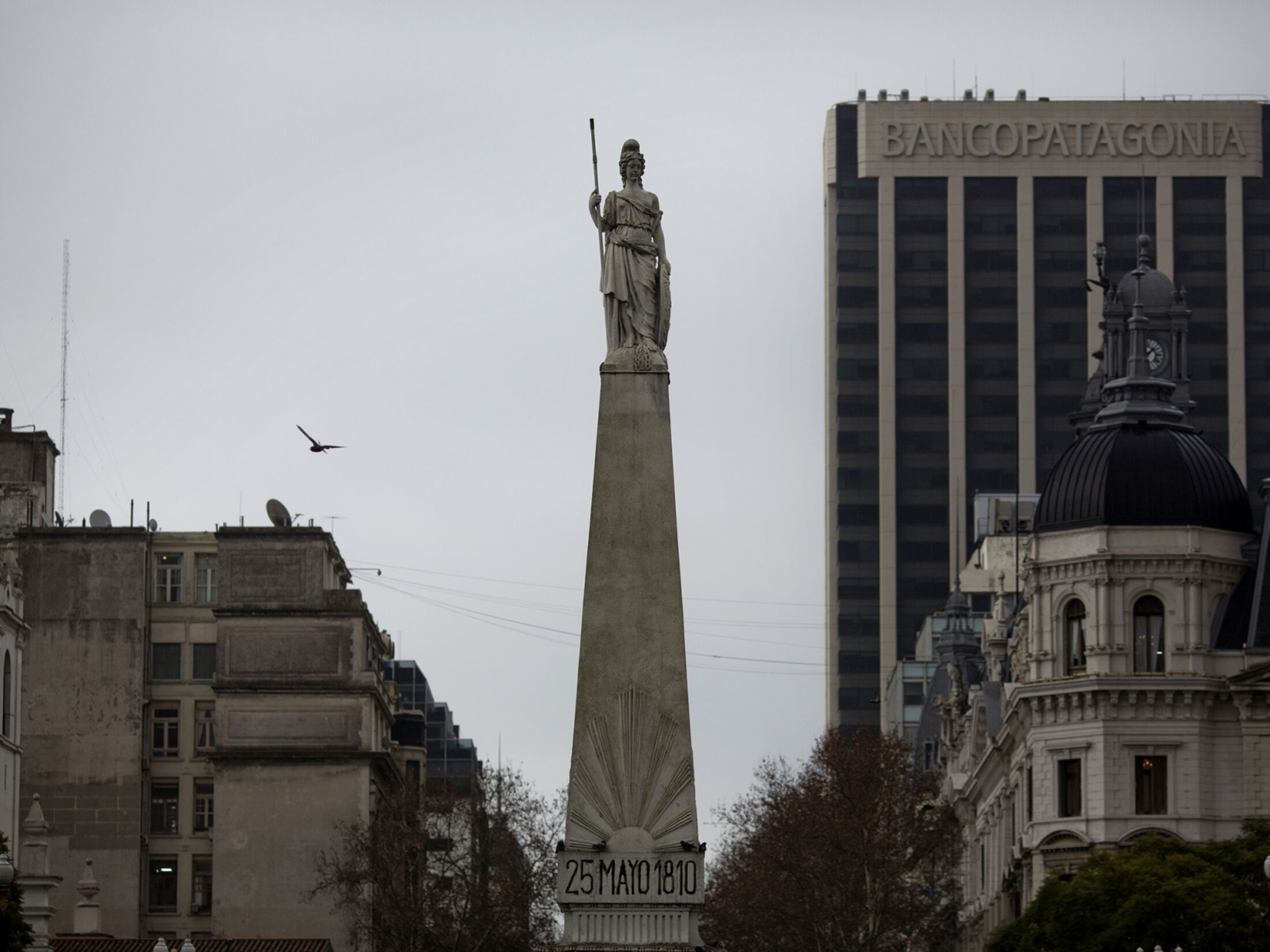xxxxxxxxxxxxxxxxxxxxxxxxx
- At issue are GDP warrants for 2005, 2010 debt restructurings
- Bill could hit $1.8 billion if suit succeeds and others join

Aurelius Capital Management LP, one of the lead hedge funds that settled a massive litigation over defaulted bonds with Argentina in 2016, is suing the country again, this time over $84 million in payments it says the nation owes.
The suit is leagues away from the threat Argentina faced after it defaulted on $95 billion in sovereign debt in 2001. But the bill could mount if the complaint succeeds and others join the fray.
After its meltdown in the new millennium, Argentina offered to exchange the defaulted debt for new bonds -- at a sharp decrease in value -- in 2005 and 2010 and struck a deal with about 92 percent of the bondholders.
As a sweetener for the deal, investors also got GDP warrants that pay off when the country’s economy expands by more than 3 percent a year, and received payments on those warrants every year from 2005 to 2011 except 2009, according to the complaint, which Aurelius filed Monday in Manhattan federal court.
Now, Aurelius claims Argentina failed to properly calculate when payments were triggered and owes it $83.7 million, including interest.
“In essence, tendering bondholders provided Argentina many billions of dollars of debt relief in return for a participation in the ensuing growth of Argentina’s economy,” the hedge fund said in its complaint.
Representatives of Argentina’s Economy Ministry and president’s office didn’t immediately respond to requests for comment.
For watchers of Argentine bonds, Aurelius’s lawsuit brings back memories of the 13-year litigation over the 2001 default and the nation’s hard-line policy, under former president Cristina Fernandez de Kirchner. The country defied court orders to pay “vulture fund” bondholders, including Aurelius, that had bought the debt on the cheap and pursued their claims in court. In 2016, the government of President Mauricio Macri agreed to pay $4.65 billion to Aurelius Capital, Paul Singer’s Elliott Management and two other hedge funds, paving the way for the nation to re-enter the international debt market.
The new suit, by contrast, appears limited to a payment-calculation dispute. Nor is the government facing an immediate risk from the suit itself, as it will likely take time to work its way through the system, said Alejo Costa, BTG Pactual Argentina’s chief strategist.
But if it succeeds, and other holders of the New York-law warrants join it, the cost, including interest, could balloon to $1.8 billion, he calculated.
The conflict arises from a change the Argentine government made under Fernandez, who in March 2014 altered the base year for GDP to 2004 from 1993, reducing growth in 2013 to 3 percent, almost half the previously forecast pace and below the trigger for a warrant payment that year.
In the lawsuit, Aurelius says it should have received a payment for 2013, with data from the economic activity index used to measure growth, and that a variable ratio should have been used to determine the payment.
That case is “weak,” BTG Pactual’s Costa said, because “the economic activity index does not represent the GDP so closely, but rather is a preliminary estimate.”
Since 2005, investors have received six payments totaling 18 cents per warrant (on the dollar) as the Argentine economy boomed. The warrants can pay a maximum of 48 cents until they mature in 2035. The dollar-denominated warrants were little changed on Monday, with those issued in 2005 at 4.3 cents on the dollar, down from as much as 11.9 cents in early 2016, as the Argentine economy has declined.
Investors have been wary of the warrants since Macri’s government said in 2016 it would again change the base year of the GDP series used to calculate payments, a move that could affect the underlying value of the securities depending on whether the change would result in data that showed faster or slower growth. Many have shunned the warrants since then, concerned that the change posed a litigation risk.
Macri’s administration had previously aimed to buy back the GDP warrants, and even sold bonds aimed at doing so, but later delayed its plan. Macri is facing a presidential election this year.
The case is Aurelius Capital Master Ltd. v. the Republic of Argentina, 19-cv-351, U.S. District Court, Southern District of New York (Manhattan).
— With assistance by Patrick Gillespie, and Katia Porzecanski
(Updates with background and analysis starting in ninth paragraph.)







